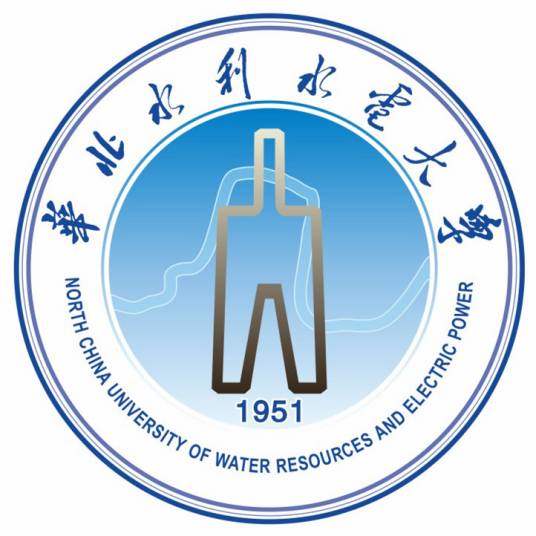North China University of Water Resources and Electric Power
Address: No. 136 Jinshui East Road, Zhengzhou City, Henan Province, P.R.China . 450046

Address: No. 136 Jinshui East Road, Zhengzhou City, Henan Province, P.R.China . 450046
North China University of Water Resources and Electric Power (Hereafter called NCWU) was founded in 1951. Currently, it is jointly sponsored by China’ s Ministry of Water Resources and Henan Provincial Government. With three campuses, NCWU occupies a land area of 256 hectares. The university library owns a collection of more than 2 million books. The value of NCWU’ s laboratory equipments and facilities amount to over 210 million yuan (RMB).
With over 2,500 faculty and staff, NCWU offers 64 bachelor, 38 master and 4 doctoral programs to over 33,000 full-time students and 18000-plus part-time students.
NCWU encompasses 24 teaching units, namely, Schools of Water Resources, School of Resources & Environment, School of Civil Engineering and Transportation, School of Mechanical Engineering, School of Electric Power, School of Environmental and Municipal Engineering, School of Management and Economics, School of Architecture, School of Mathematics and statistics, School of Information Engineering, School of Software, School of Foreign Languages, School of Law, School of International Education, Physical Education Department and so on. Besides, there are also 65 research institutions under NCWU, such as Research Institute of Steel Structures, Yellow River Institute of Sciences, Research Institute of Urban Water Affairs, Institute of Geotechnical Engineering and Hydraulic Structures, Institute of Broad- Spectrum Philosophy and Research Center for Art Education, and many others.
Over the past decades, NCWU has been awarded with countless honors by various academic institutions and government agencies at central and provincial levels . Honors that NCWUers value and remember particularly are awards for NCWU’ s efforts and achievements for its graduates. In 2009 and 2012 respectively, the university was awarded by the Ministry of Education as "National Advanced Institution in Promoting Employment for Graduates",and awarded by Henan Provincial Government as "Model for the Most Competitive Employment-promotion University in Henan Province". The best awards come from employers. Over the years, NCWU’s graduates enjoy well- established appraisal as "pragmatic, hardworking, persevering and professional" fromengineeringcompanies, governmental organizationsas well as academic institutions across China and some parts of the world.
The training objectives of this major can be summarized as: to be able to systematically master the basic principles of economics and the basic theories of international economy and trade, master the basic knowledge and skills of international trade, understand the development status of China's foreign trade and contemporary international economic trade, be familiar with the prevailing international trade practices and rules, as well as the policies and regulations of China's foreign trade, and understand the major countries Foreign trade status of home and region, senior professionals who can engage in international economic and trade business, management, research, teaching and scientific research in foreign economic and trade departments, foreign-funded enterprises, government institutions and scientific research institutes.
Logistics Management Program was approved by the Ministry of Education in 2019 as the first batch of National First-class Undergraduate Programs. It has formed two specialized directions of Supply Chain Logistics and International Logistics. It aims to cultivate students’ abilities of practical problems-solving in the fields of logistics management of industrial and commercial enterprises, operation and management of logistics enterprises, and other adjacent positions.
Students of this major mainly study the basic theories and knowledge of engineering mechanics, geotechnical engineering, structural engineering, municipal engineering, water supply and drainage engineering and water conservancy engineering, receive basic training in engineering drawing, engineering survey, computer application, professional experiment, structural design and construction practice, and have the ability to engage in construction engineering, traffic civil engineering, water conservancy and hydropower engineering Planning, design, construction, management and related research capacity of port engineering, coastal engineering and water supply and drainage engineering.
Electrical Engineering and Automation Program mainly helps students to prepare the theoretical knowledge ad basic skills of electrical and electronic technology, motor and control application, power electronics technology and application, electric power system operation and analysis. Students will learn to solve the engineering practical problems by applying what is learned. They will be equipped with excellent scientific literacy and engineering practice skills; and can work in electrical engineering and other related fields of electric power system operation and control, electrical equipment application integration, enterprise power supply management and services. Graduates can work in power plants, power grid enterprises and electrical manufacturing enterprises, engaged in electric energy generation, transmission, distribution. They can also work in companies, designing institutes and research institutes; engaged in engineering design, equipment manufacturing, application and development, operation maintenance and production management of electrical engineering.
The practical teaching includes experiments, practices, designs, training for scientific research and other parts. Specifically, the experiments include three parts---elementary experiments, professional elementary experiments, and professional research experiments; the practices include two parts---metal working practice and cognition practice; the designs include three parts---professional basic course design, professional course design and graduation design (paper). Engineering mechanics experiments, mechanical design fundamentals experiments, electrical and electronic technology experiments, mechanical control theory experiments, machine manufacturing technology fundamentals experiments, exchangeability and technological measurement experiments, modern design theory and method experiments, engineering materials experiments, etc.